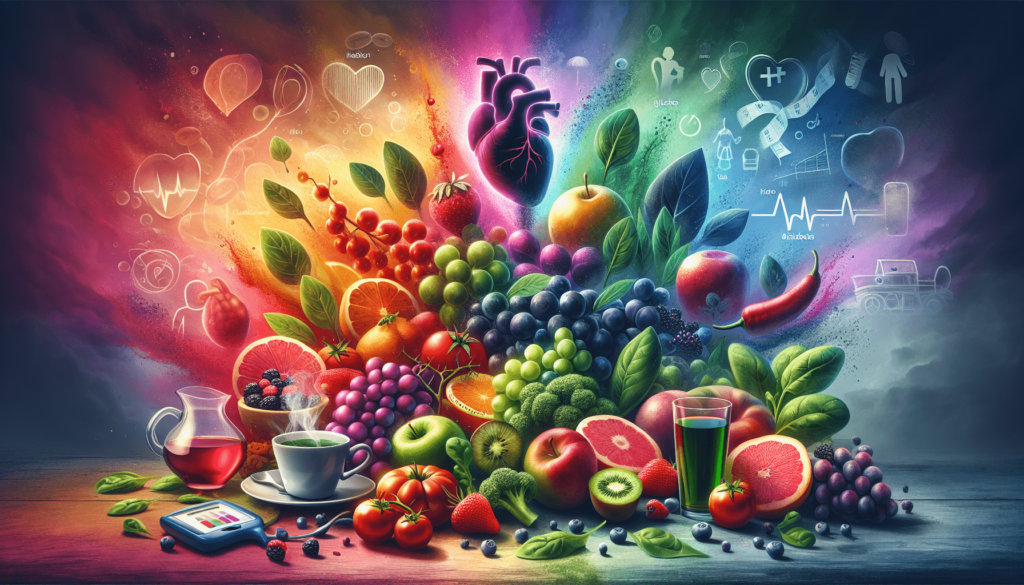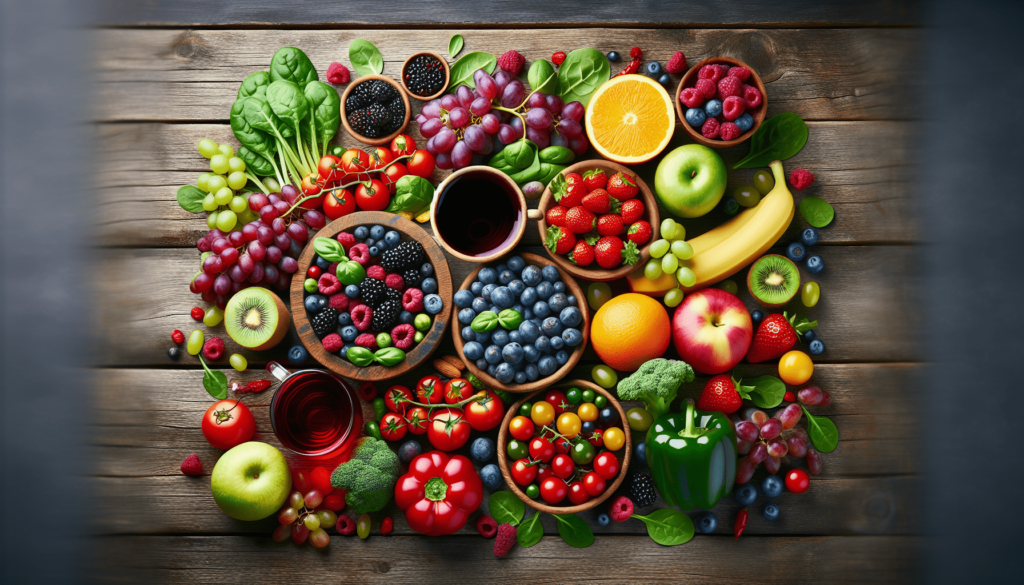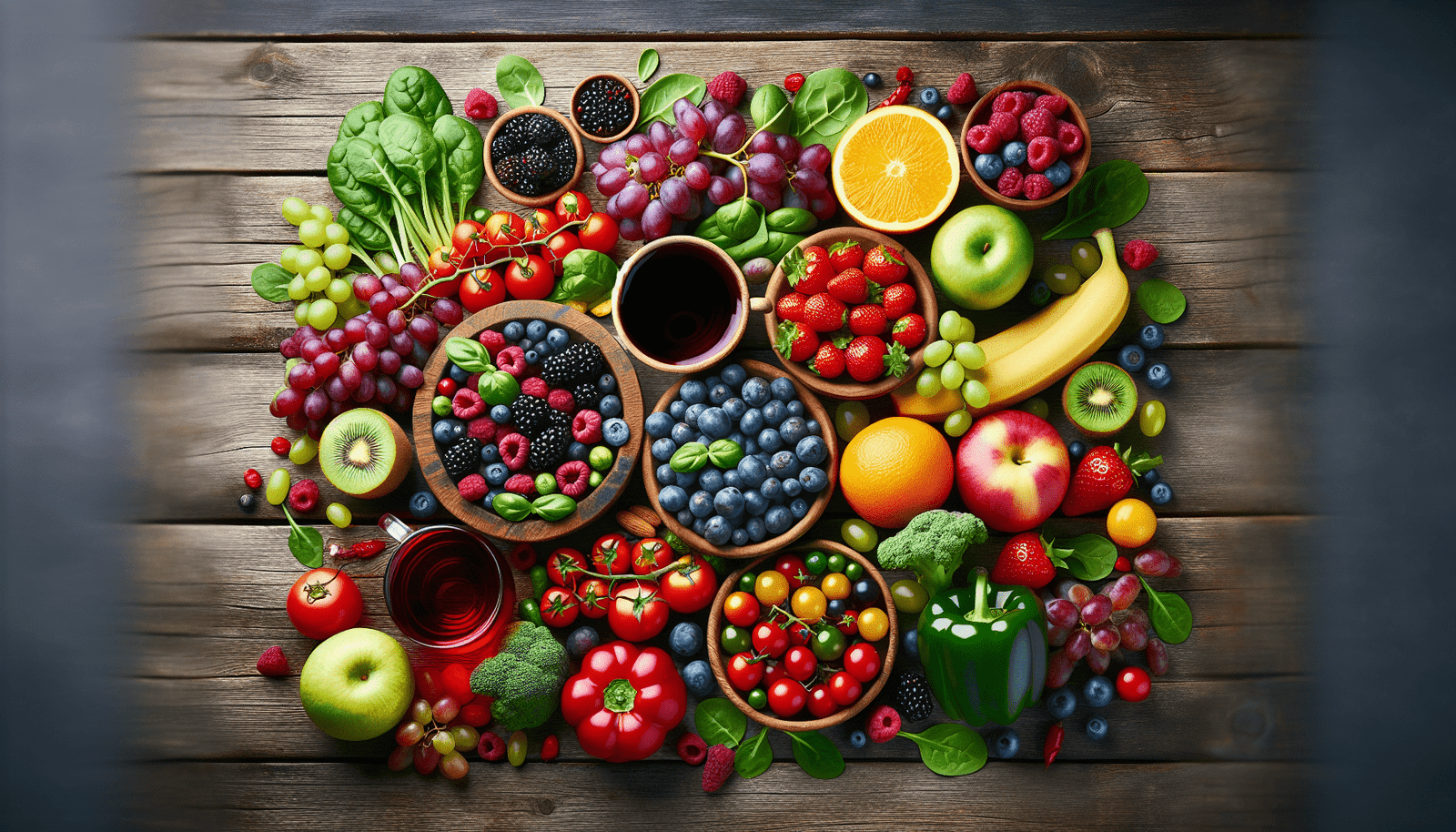Welcome to an eye-opening article on the incredible benefits of polyphenols in preventing diseases. You may not have heard of polyphenols before, but these powerful antioxidants found in fruits, vegetables, and other plant-based foods play a crucial role in protecting your body from various illnesses. By incorporating polyphenol-rich foods into your diet, you can boost your immune system, reduce inflammation, and lower your risk of developing chronic conditions such as heart disease, cancer, and diabetes. Keep reading to discover how polyphenols can positively impact your health and overall well-being. Have you ever wondered how certain foods can help prevent diseases and keep you healthy? Today, we’re going to dive into the fascinating world of polyphenols and how they play a crucial role in disease prevention. Polyphenols are powerful antioxidants found in a variety of plant-based foods, and their benefits are truly remarkable. So, grab a seat, and let’s explore the power of polyphenols together.
What Are Polyphenols?
Polyphenols are natural compounds found in plants that have antioxidant properties. They are responsible for the vibrant colors of many fruits and vegetables and play a key role in protecting plants from environmental stressors. When we consume foods rich in polyphenols, we can reap the benefits of their antioxidant properties, which help fight off harmful free radicals in our bodies.
Let’s break it down: think of polyphenols as the superheroes of the plant world, fighting off the bad guys (free radicals) to keep the plant healthy and thriving. When we consume these superhero compounds through our diet, we can also benefit from their antioxidant powers.
Types of Polyphenols and Their Sources
There are several types of polyphenols, each with unique properties and health benefits. Some of the most common types include flavonoids, phenolic acids, and stilbenes. Here are some examples of foods that are rich in these powerful compounds:
| Type of Polyphenol | Food Sources |
|---|---|
| Flavonoids | Citrus fruits, berries, tea |
| Phenolic Acids | Whole grains, coffee, nuts |
| Stilbenes | Red grapes, peanuts, red wine |
Imagine a colorful palette of foods, each offering a unique combination of polyphenols to help protect your body from harm. By incorporating a variety of these foods into your diet, you can ensure you are getting a diverse range of health benefits from polyphenols.

Health Benefits of Polyphenols
Polyphenols have been studied extensively for their health-promoting properties, and the results are impressive. Here are some of the ways in which polyphenols can benefit your health:
- Antioxidant Protection: Polyphenols help neutralize free radicals in the body, reducing oxidative stress and inflammation.
- Heart Health: Some polyphenols have been shown to lower blood pressure, improve cholesterol levels, and reduce the risk of heart disease.
- Brain Function: Certain polyphenols may help protect brain cells from damage and improve cognitive function.
- Gut Health: Polyphenols can act as prebiotics, feeding beneficial gut bacteria and promoting a healthy digestive system.
- Anti-Inflammatory Effects: Polyphenols have anti-inflammatory properties that can help reduce the risk of chronic diseases.
It’s like having a team of health guardians inside your body, working tirelessly to keep you feeling your best. From your heart to your brain to your gut, polyphenols offer a wide range of benefits that can support your overall well-being.
How to Incorporate Polyphenols Into Your Diet
Getting enough polyphenols in your diet is easy when you know where to find them. Here are some simple tips to help you incorporate more polyphenol-rich foods into your meals:
- Eat a Rainbow: Choose a variety of colorful fruits and vegetables to ensure you are getting a mix of different polyphenols.
- Brew Some Tea: Green tea, in particular, is a rich source of polyphenols, so enjoy a cup or two throughout the day.
- Sip on Some Red Wine: In moderation, red wine can be a source of stilbenes, a type of polyphenol known for its heart-healthy benefits.
Think of your meals as an opportunity to nourish your body with a rainbow of polyphenol-rich foods. By making simple swaps and additions to your diet, you can easily boost your polyphenol intake and support your health.

Polyphenols and Disease Prevention
Now, let’s talk about the role of polyphenols in disease prevention. Research has shown that polyphenols can help reduce the risk of several chronic diseases, including:
- Cancer: Some polyphenols have been found to have anti-cancer properties and may help protect against certain types of cancer.
- Diabetes: Polyphenols can improve insulin sensitivity and blood sugar control, reducing the risk of type 2 diabetes.
- Cardiovascular Disease: By lowering inflammation and improving heart health, polyphenols may help reduce the risk of heart disease.
Picture polyphenols as your body’s shield against the forces of disease, standing guard and protecting you from harm. By including polyphenol-rich foods in your daily diet, you can take proactive steps towards preventing chronic diseases and maintaining your health.
Supplementing With Polyphenols
While getting polyphenols from whole foods is always a good idea, some people may choose to supplement their diet with polyphenol extracts. These supplements come in various forms, such as capsules, powders, or liquids, and can provide a concentrated dose of polyphenols.
Supplements can be a convenient way to ensure you are getting enough polyphenols, especially if you have dietary restrictions or limited access to certain foods. However, it’s important to remember that supplements should complement a healthy diet, not replace it entirely.
Polyphenols and Aging
As we age, our bodies undergo changes that can impact our overall health and well-being. Polyphenols have shown promise in slowing down the aging process and promoting longevity. Here are some ways in which polyphenols can support healthy aging:
- Skin Health: Polyphenols have been linked to improved skin elasticity and hydration, reducing the signs of aging.
- Joint Health: Certain polyphenols have anti-inflammatory properties that can help reduce joint pain and stiffness.
- Cognitive Function: By protecting brain cells from damage, polyphenols may help maintain cognitive function and prevent age-related decline.
Think of polyphenols as your fountain of youth, offering a natural way to support your body as it ages gracefully. By incorporating polyphenol-rich foods into your diet and incorporating healthy lifestyle habits, you can optimize your overall health and well-being as you grow older.
The Bottom Line
In conclusion, the power of polyphenols in disease prevention is truly remarkable. These antioxidant compounds found in plant-based foods offer a wide range of health benefits, from protecting your heart to boosting your brain health. By incorporating polyphenol-rich foods into your diet and supplementing wisely, you can harness the power of polyphenols and support your overall well-being.
So, the next time you sit down to enjoy a colorful meal, remember the superheroes of the plant world – polyphenols – and how they are working to keep you healthy and thriving. Here’s to your health and the power of polyphenols in disease prevention!

